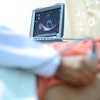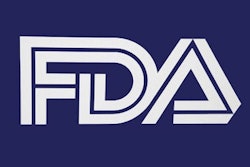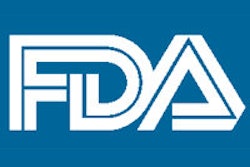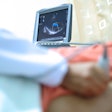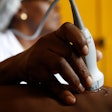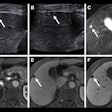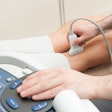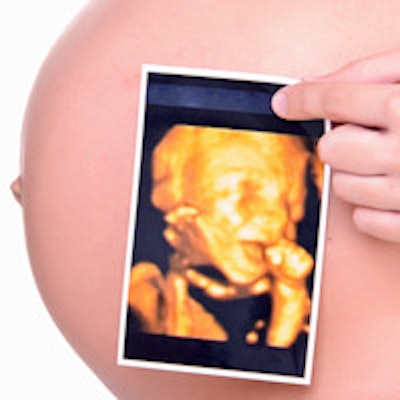
The U.S. Food and Drug Administration (FDA) has issued a consumer update to strongly discourage pregnant women from obtaining fetal keepsake ultrasound images and videos, as well as using over-the-counter Doppler fetal ultrasound heartbeat monitors.
While there isn't any evidence of harm due to ultrasound imaging and heartbeat monitors, prudent use of these devices by trained healthcare providers is important, Shahram Vaezy, PhD, an FDA biomedical engineer, said in a statement.
Ultrasound can slightly heat tissues and can also produce cavitation (i.e., very small bubbles) in some tissues. Because the long-term effects of tissue heating and cavitation aren't known, patients should only receive ultrasound scans when there's a medical need based on a prescription and when they are performed by appropriately trained operators, according to the FDA.
The agency noted that it's aware of several U.S. enterprises that are commercializing ultrasound imaging by making fetal keepsake videos, in some cases using an ultrasound machine for as long as an hour to get a video of the fetus.
While recognizing that fetal imaging can promote bonding between the parents and the unborn baby, the FDA said that such opportunities are routinely provided during prenatal care. With fetal keepsake videos, there is no oversight of how long a single imaging session will last, how many sessions will take place, or whether the ultrasound systems will be properly operated, the FDA said.
However, "proper use of ultrasound equipment pursuant to a prescription ensures that pregnant women will receive professional care that contributes to their health and to the health of their babies," Vaezy said.
The FDA expressed similar concerns regarding the over-the-counter sale and use of Doppler ultrasound heartbeat monitors. These devices are legally marketed as prescription devices and should only be used by or under the supervision of a healthcare professional, the FDA said.
When purchased over the counter and used without consulting a healthcare professional, there is no oversight and little or no medical benefit expected from the exposure, Vaezy said.
"Furthermore, the number of sessions or the length of a session in scanning a fetus is uncontrolled, and that increases the potential for harm to the fetus and eventually the mother," he said.




